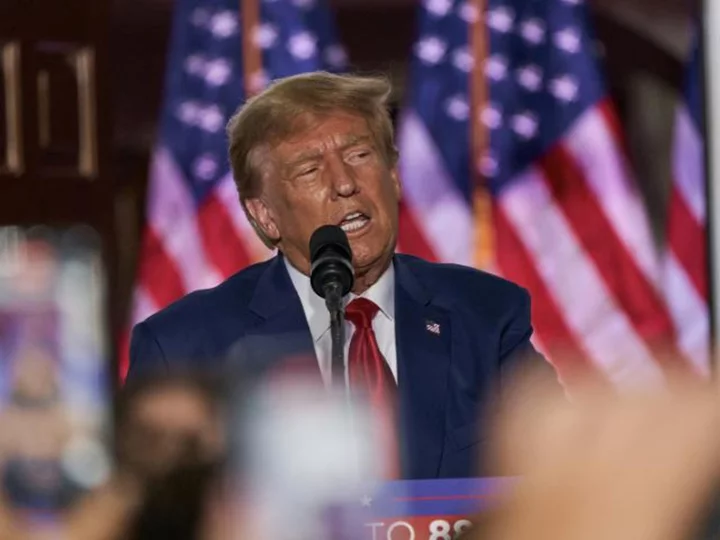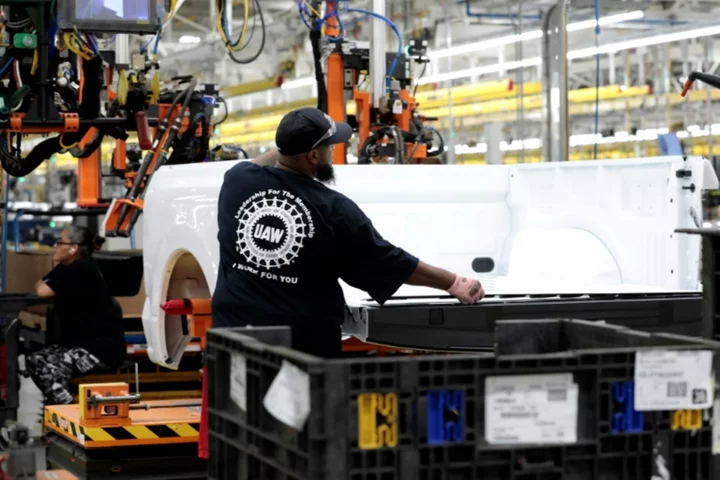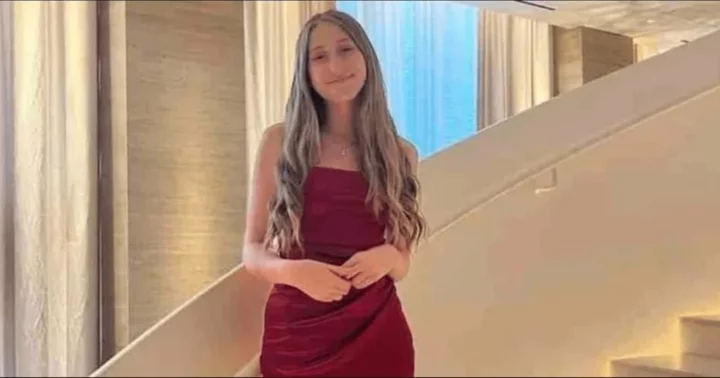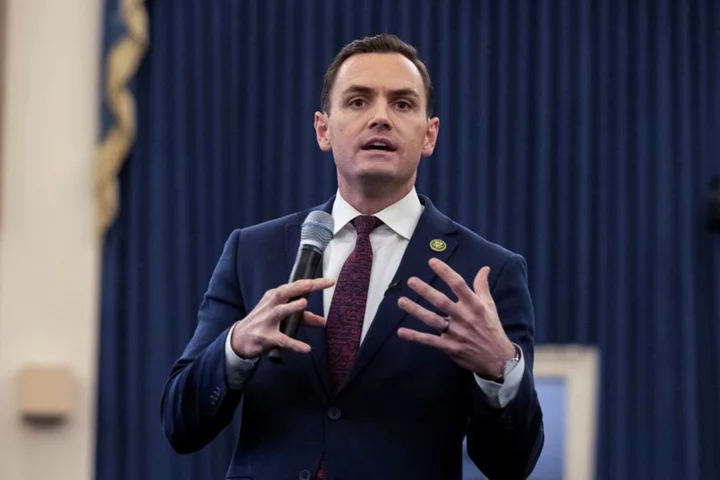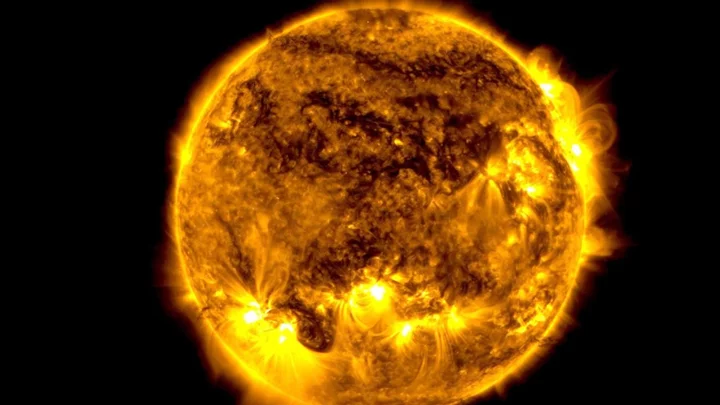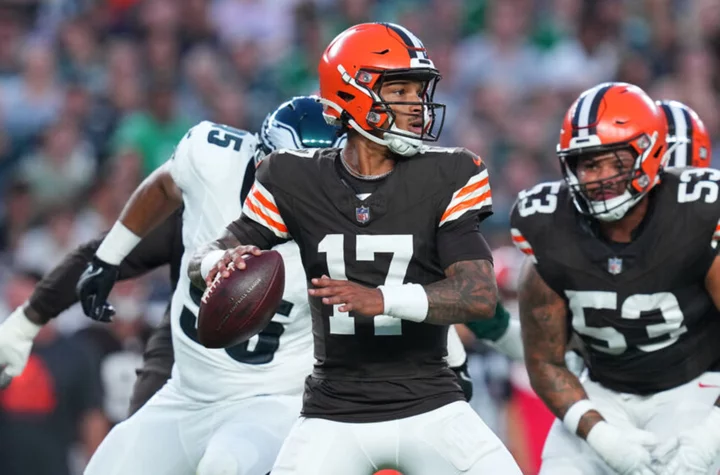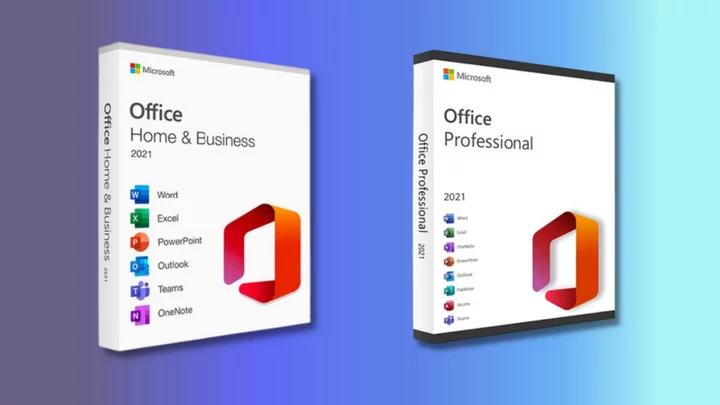Former President Donald Trump made numerous false and misleading claims in a speech he delivered Tuesday night following his afternoon arraignment in Miami federal court to face charges of illegally retaining classified documents and obstructing the federal investigation into his conduct.
Trump, who pleaded not guilty, has been persistently dishonest about matters related to the indictment. Here is a fact check of some of the things he said in the Tuesday night address from his golf club in Bedminster, New Jersey.
Trump and the Presidential Records Act
Trump claimed that the documents he had at Mar-a-Lago were "his own documents" and that he "had every right" to keep them under the Presidential Records Act.
Facts First: This is false. The Presidential Records Act says that all presidential records belong to the federal government the moment the president leaves office. By having official records at Mar-a-Lago after his presidency, Trump was in clear contravention of that law.
The key sentence from the Presidential Records Act is unequivocal: "Upon the conclusion of a President's term of office, or if a President serves consecutive terms upon the conclusion of the last term, the Archivist of the United States shall assume responsibility for the custody, control, and preservation of, and access to, the Presidential records of that President."
Jason R. Baron, former director of litigation at NARA, said in a Sunday email: "Under the Presidential Records Act, not a single document pertaining to the official business of the White House -- classified or unclassified -- should have been carted off to Mar-A-Lago. President Trump might consider such records to be 'his,' but they are not."
The Presidential Records Act and negotiation
Trump repeated his frequent claim that "according to the Presidential Records Act, which was a big deal, I was supposed to negotiate with NARA," the National Archives and Records Administration, about the return of official documents after his presidency.
Facts First: Trump's claim is false. Again, the Presidential Records Act says that the moment a president leaves office, NARA gets custody and control of all presidential records from his administration. Nothing in the law says there should be a negotiation between a former president and NARA over a former president's return of presidential documents -- much less that there should have been a monthslong battle after NARA first contacted Trump's team in 2021 to try to get some of the records that had not been handed over at the end of his presidency.
Baron, the former director of litigation at NARA, told CNN in a March 2023 email: "The former President is simply wrong as a matter of law. As of noon on January 20, 2021, when President Biden took office, all presidential records of the Trump Administration came into the legal custody of the Archivist of the United States. Full stop. That means no presidential records ever should have been transferred to Mar-a-Lago, and there was no further talking or negotiating to be had."
Timothy Naftali, a CNN presidential historian, New York University professor and former director of the Richard Nixon Presidential Library, described Trump's claim as "nonsense" and said the former president's description of the Presidential Records Act is "a matter of fantasy," concocted to allow Trump to "pretend that he's a victim."
The law, Naftali said in March 2023, makes clear that documents Trump had at Mar-a-Lago are presidential records that legally belong to the public and are legally required to be in NARA's custody. The law provides "no room for debates and discussions between presidential advisers and the National Archives at the end of a presidency" about such records, Naftali said.
In April 2023, the Society of American Archivists, a professional association, published its own fact check of Trump's claim, saying it is "patently false."
The legality of the documents probe
Trump served up a series of untrue claims about the probe itself, falsely accusing investigators of repeatedly taking steps that were either illegal or violated the Constitution.
He said last year's FBI search of his Mar-a-Lago home was unconstitutional. Investigators snapped a photo of some of the classified documents they found and, in Trump's retelling, the FBI "released the picture illegally to the press." He also claimed Smith's team "lawlessly pierced my attorney-client privilege" by obtaining testimony and written evidence from his former lawyer, Evan Corcoran.
Facts First: Trump is wrong on all three fronts. The Mar-a-Lago search wasn't unconstitutional, it was authorized by a judge who determined that prosecutors cleared the legal bar to conduct a search. The FBI didn't release the photo "illegally;" they included it in a court filing -- in a lawsuit that Trump himself initiated. And finally, prosecutors got a judge's approval to lawfully obtain testimony from Corcoran.
Trump's attorneys will likely mount additional challenges to the Corcoran evidence, but at this point in the case, there's no evidence it was improperly obtained by Smith. The special counsel's team convinced the chief judge of the DC federal court to order Corcoran to testify at the grand jury, arguing that attorney-client privilege didn't apply because Trump was trying to commit a crime through Corcoran.
Other presidents and documents
Trump claimed that he is being charged under the Espionage Act for taking his "own" presidential documents, even though "just about every other president has done" the same.
Facts First: It's not true that "just about every other president" has done what Trump has done, as the National Archives and Records Administration itself pointed out in a statement in 2022. No president since the Presidential Records Act took effect with President Ronald Reagan's records in the 1980s has taken home troves of official documents or engaged in anything like Trump's protracted post-presidency refusal to return official documents sought by NARA and the Justice Department.
Trump has previously made a more specific version of this claim, declaring that former presidents including Barack Obama, George H.W. Bush and George W. Bush had all taken home millions of records. In reality, NARA was granted custody of their presidential records as soon as these presidents left office, as required by the Presidential Records Act, and it was NARA, not those presidents, that moved those documents out of the nation's capital to NARA-managed temporary archival facilities near where their permanent presidential libraries would be built.
After Trump began making these false claims, NARA issued an October 2022 statement saying that it gained physical and legal custody of the records from Obama, the Bushes, Bill Clinton and Ronald Reagan "when those presidents left office." It said of the temporary facilities to which the documents were moved: "All such temporary facilities met strict archival and security standards, and have been managed and staffed exclusively by NARA employees. Reports that indicate or imply that those Presidential records were in the possession of the former Presidents or their representatives, after they left office, or that the records were housed in substandard conditions, are false and misleading."
In other words, there is no equivalence between Trump's handling of presidential documents and those previous presidents.' In Trump's case, the presidential documents found in haphazard amateur storage at Mar-a-Lago, including documents marked as classified, were in Trump's possession despite numerous attempts by both NARA and the Justice Department to get them back.
Jack Smith's alleged political bias
Trump baselessly accused special counsel Jack Smith of political bias, saying Smith "does political hit jobs" for a living and that "he's a raging and uncontrolled Trump hater, as is his wife."
Facts First: There is no public evidence that Smith is politically biased or a left-wing zealot. In fact, Smith was involved in previous Justice Department prosecutions against high-profile Democratic officeholders -- which Trump even mentioned in his speech.
CNN senior legal analyst Elie Honig said earlier Tuesday that "the record does not at all bear out this notion that Jack Smith is partisan or Democratic-leaning," pointing out that Smith is a career official who has served under Democratic and Republican administrations since 1994.
Some of Trump's unfounded attacks against Smith stem from the activities of his wife, filmmaker Katy Chevigny. Trump alluded to Chevigny on Tuesday night -- and in many of his prior diatribes -- calling her an "open Trump hater," because she donated $2,000 to the Biden campaign in 2020, and was a producer for a Netflix documentary about former first lady Michelle Obama.
Smith himself is a registered independent and hasn't donated to Democratic campaigns.
During his time at the Justice Department, specifically when he led the public integrity section, Smith prosecuted politicians from both parties, undercutting Trump's previous claim that Smith has a "history of targeting conservatives." But Honig pointed out on CNN earlier Tuesday that "the three biggest cases that Jack Smith was either involved in or oversaw as a supervisor, all were ultimately failures."
Honig cited the prosecutions against John Edwards, the 2004 Democratic vice presidential nominee, whose campaign finance case ended in a mistrial; former Virginia Gov. Bob McDonnell, a Republican, whose corruption convictions were unanimously overturned by the Supreme Court; and New Jersey Sen. Bob Menendez, a Democrat whose corruption trial also ended in a mistrial.
Trump said the collapse of the cases against McDonnell and Edwards demonstrates that Smith's prosecutions are unjustified.
Biden's supposed role in the indictment
Trump began the speech with an accusation that President Joe Biden is responsible for his indictment, saying that the president "had his top political opponent arrested on fake and fabricated charges" in the middle of a presidential election.
Facts First: This claim is not supported by any evidence. There is no sign that Biden has been involved in the decision to criminally investigate or prosecute Trump; ordinary citizens on a Florida grand jury voted to indict Trump, and the prosecution is led by a special counsel, Jack Smith. Smith was appointed in November 2022 by Attorney General Merrick Garland, a Biden appointee, but that is not proof that Biden was involved in the prosecution effort.
Biden said Friday that he had not spoken to Garland on the subject and was "not going to speak with him."
Biden's Senate records at the University of Delaware
As Trump has done repeatedly, he attacked Biden's handling of official documents. He claimed that Biden took classified documents from his time as a senator and vice president -- and then claimed, without explanation, that Biden "sent 1,850 boxes to the University of Delaware."
Facts First: Trump's context-free invocation of these Biden documents is highly misleading. The approximately 1,850 boxes that Biden legally and properly donated in 2012 to the University of Delaware are a collection of records from his 36 years in the US Senate. Unlike presidents, whose official records are property of the federal government under the Presidential Records Act, senators own their offices' records and can do whatever they want with them -- donate them to colleges as is standard, keep them at their homes, give them to journalists, even throw them in the trash. There is no current evidence that these boxes of Biden documents contain any classified documents.
Biden consented to two FBI searches at the university that did not initially appear to turn up any documents with classified markings, a source familiar with the investigation told CNN's Paula Reid in February, though the papers were still being analyzed at the time.
Biden's handling of classified documents is certainly open to criticism. Classified documents were discovered at his home in Delaware and in a former office of his, and he remains under a special counsel investigation. But there is nothing nefarious about him donating his Senate records to his alma mater.
Margaret Kwoka, a law professor at The Ohio State University and an expert on information law, said in a Friday email that "any comparison between congressional records and presidential records is an apples-to-oranges comparison. The legal requirements are entirely different between the two."
You can read a longer fact check here about the repository of Biden's Senate documents at the University of Delaware.
Biden's cooperation over the boxes at the University of Delaware
Speaking of these boxes at the University of Delaware, Trump said Biden "refuses to give them up and he refuses to let people even look at them. And then they say how he's behaving so nicely."
Facts First: This is highly misleading at best. Biden has consented to two FBI searches of his Senate papers at the University of Delaware. CNN reported in February that, according to a source familiar with the investigation, there was no initial indication that any of the documents were classified, though they were still being analyzed at the time.
It is not clear if Biden permitted the FBI to look at each and every one of the boxes of Senate papers at the university, or even if the FBI wanted to search all of those boxes; a spokesperson for Biden's personal lawyer did not respond in early June to a CNN request for more information. But even with few details publicly known at present, it is clear that Trump's broad declaration that Biden "refuses to let people even look at them" goes too far.
It is true that Biden's Senate papers at the university are not yet publicly available; the university website says the boxes were delivered in mid-2012 but will require Biden's consent to view until two years after Biden retires from public life. That restriction has frustrated some Biden critics, but it is certainly not a crime -- and it is normal, as the Senate's official website explains, for senators to donate papers to a home-state research institution with conditions about when they are to be released into the public realm.
Hillary Clinton comparison
Trump said he was the victim of a politicized Justice Department because he was indicted, while his 2016 opponent, Hillary Clinton, didn't face charges from her own classified documents scandal, stemming from her use of a private email server to conduct government business while she was secretary of state.
He claimed she had a "deliberate intention" of violating records retention laws and that "there's never been obstruction as grave" as what she did to undermine her own FBI probe in 2015-2016. He also said, "Hillary Clinton broke the law, and she didn't get indicted" because "the FBI and Justice Department protected her," although there isn't any evidence that their decision-making was tainted by politics.
Facts First: This is an inaccurate and self-serving comparison. Investigators saw problems with how both Trump and Clinton handled classified material, but there are several key differences between their cases. For starters, Trump mishandled far more material. Also, he was charged with knowingly breaking the law and obstructing the investigation, while the FBI concluded that Clinton didn't act with criminal intent.
Former FBI Deputy Director Andrew McCabe, a CNN contributor who oversaw the Clinton email probe, explained how that was "very, very different" from Trump's case in an interview Monday with CNN's Dana Bash.
Investigators found 52 email chains on Clinton's private server that contained references to information "that was later deemed to be classified," McCabe said. Only eight of those chains mentioned "top secret" information, the highest level of classification. And the email chains did not have "stampings" on them that would've indicated at the time that the material was classified.
Compare that with Trump, who took more than 325 classified records to Mar-a-Lago after leaving the White House, including at least 60 "top secret" files. These were full documents with "headers and footers" and cover sheets "indicating they were some of the most classified materials we have," McCabe said.
Another big difference is that Trump is facing six obstruction-related charges. Prosecutors say he conspired to defy a grand jury subpoena demanding the return of all classified documents, and that he misled his attorneys who were trying to comply with the subpoena.
Despite Trump's claims in his speech, prosecutors never accused Clinton of undermining their probe. Clinton gave a voluntary interview to the FBI and she could have been prosecuted for lying if she made any false statements. The FBI later concluded that there was not "clear evidence" that Clinton "intended to violate laws," and that charges weren't warranted without any evidence of obstruction.
"Should it have happened? No," McCabe said of Clinton's private email server. "But what we didn't have was evidence that Hillary Clinton had intentionally exchanged or withheld classified information."
Uncorroborated Biden bribery claims
Trump brought up recent claims from congressional Republicans that new "evidence revealed that Joe Biden took a $5 million bribe from Ukraine" and that "the FBI and the Justice Department don't even want to talk about it." He also claimed, with no proof, that Smith indicted him to distract from the story.
Facts First: Trump is overstating the known evidence about the supposed bribery scheme, and he falsely suggested the Justice Department is covering it up. The Justice Department didn't ignore the allegation when it got the tip in 2020 -- a Trump-appointed US attorney looked into the matter but wasn't able to corroborate it, and referred it to another prosecutor for potential further review, according to previous CNN reporting.
In recent weeks, congressional Republicans have picked a fight with the FBI, demanding to see an internal document that they claim sheds light on the supposed Biden bribery scheme. The document, known as an FD-1023, describes an interview that FBI agents conducted in June 2020 with a known informant who was considered to be a trustworthy source.
The document isn't public. But Republican lawmakers who reviewed it have said the FBI informant described a conversation with a Ukrainian national, who claimed that he paid $5 million to then-Vice President Biden in exchange for a desired policy outcome. CNN has reported that the FBI document doesn't contain proof that the underlying allegation is true.
The Trump-appointed US attorney in Pittsburgh -- who had been tasked by then-Attorney General William Barr to investigate dubious Ukraine-related tips coming from Trump lawyer Rudy Giuliani -- looked into the bribery tip but couldn't corroborate it, CNN has reported. That office then forwarded the material to the Trump-appointed US attorney in Delaware, who is still investigating the finances of the president's son, Hunter Biden. (Hunter Biden denies wrongdoing.)
For his part, Joe Biden said last week the recent GOP allegations were "a bunch of malarkey," though the White House has declined to comment further on the matter. A GOP-led Senate inquiry in 2020 didn't find evidence that Biden abused his powers as vice president to help his family make money in Ukraine, where Hunter Biden had lucrative business dealings.

